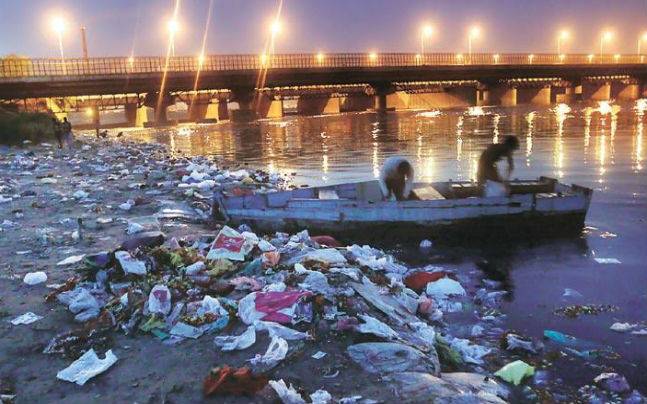The NGT-constituted high-level committee for Yamuna rejuvenation, headed by Delhi Lieutenant Governor VK Saxena, has finalised a time-bound action plan of eight parameters, with monthly targets till June.
The parameters include augmenting sewage treatment, sewage treatment plants (STPs), tapping and cleaning of drains, sewage network in unauthorised colonies and JJ clusters, septage management, minimum environmental flow, upgradation of 13 CETPs for treatment and management of industrial effluent and restoration of floodplains.
The first meeting of the high-level committee was chaired by the Delhi L-G on Friday.
“After taking stock of the prevalent situation of water quality in the river Yamuna and the various drains in the city, along with the status of Sewage Treatment Plants (STPs) and Common Effluent Treatment Plants (CETPs) in the city and dwelling upon the gaps in the actions taken till now, the meeting deliberated upon a concrete future plan of action,” an official statement from the L-G office said.
The committee has been asked to submit its first report by January 31.
“A six-month plan of action till June 2023, with monthly targets, was decided upon. The same will be monitored on a weekly basis and the first report to the NGT will be submitted on January 31,” the statement further said.
Addressing the officers, Saxena cautioned the officers against shifting goalposts.
“The task at hand is difficult due to legacy neglect, but yet achievable. Ensure implementation of the decisions taken today in a mission mode, without extending committed timelines. Any shortcoming on part of officials will not be accepted,” Delhi L-G said.
The committee was constituted by the National Green Tribunal on January 9 for the rejuvenation of the Yamuna following the Supreme Court order.
NGT in its order said that the committee was formed to oversee the implementation of its orders with regard to cleaning the Yamuna and requested Delhi L-G VK Saxena to head the committee.
The bench had observed, “It does appear that the situation to a great extent remains unsatisfactory, in violation of the judgment of the Hon’ble Supreme Court and orders of this Tribunal, fixing rigid timelines which are being defied at whims, without accountability and without visible improvement in the ground situation. Thus, an effective execution regime appears to be necessary with the involvement of topmost administrative authorities with the flexibility of procedures for the award of works for execution of pollution prevention projects.” (ANI)
Read More:http://13.232.95.176/
